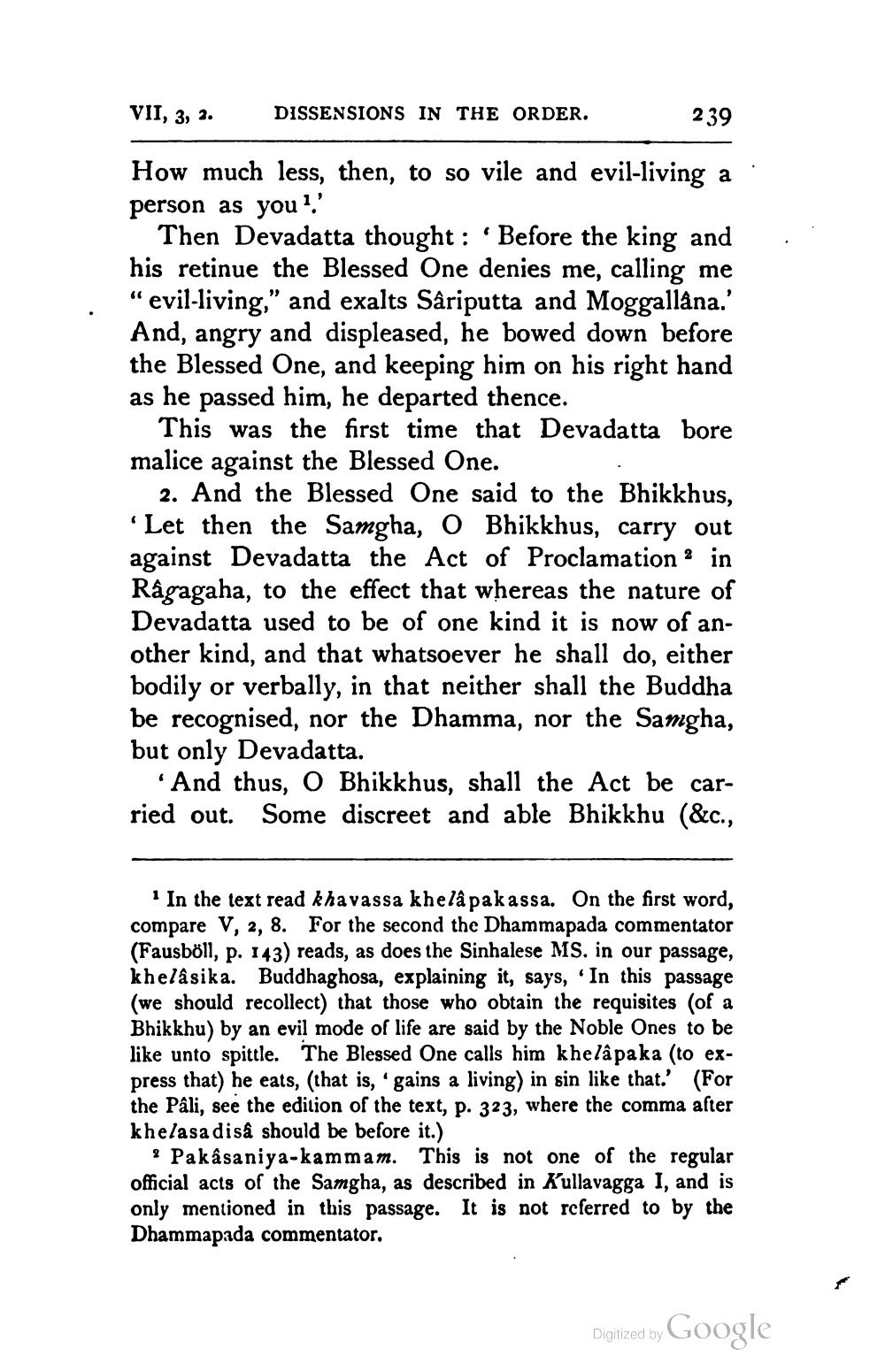________________
VII, 3, a.
DISSENSIONS IN THE ORDER.
239
How much less, then, to so vile and evil-living a person as you ?'
Then Devadatta thought : 'Before the king and his retinue the Blessed One denies me, calling me "evil-living," and exalts Sâriputta and Moggallåna.' And, angry and displeased, he bowed down before the Blessed One, and keeping him on his right hand as he passed him, he departed thence.
This was the first time that Devadatta bore malice against the Blessed One.
2. And the Blessed One said to the Bhikkhus, Let then the Samgha, O Bhikkhus, carry out against Devadatta the Act of Proclamation 2 in Ragagaha, to the effect that whereas the nature of Devadatta used to be of one kind it is now of another kind, and that whatsoever he shall do, either bodily or verbally, in that neither shall the Buddha be recognised, nor the Dhamma, nor the Samgha, but only Devadatta.
And thus, O Bhikkhus, shall the Act be carried out. Some discreet and able Bhikkhu (&c.,
* In the text read khavassa khelå pakassa. On the first word, compare V, 2, 8. For the second the Dhammapada commentator (Fausböll, p. 143) reads, as does the Sinhalese MS. in our passage, khelâsika. Buddhaghosa, explaining it, says, 'In this passage (we should recollect) that those who obtain the requisites (of a Bhikkhu) by an evil mode of life are said by the Noble Ones to be like unto spittle. The Blessed One calls him khelâpaka (to express that) he eats, (that is, 'gains a living) in sin like that.' (For the Pâli, see the edition of the text, p. 323, where the comma after khelasa disa should be before it.)
? Pakâsaniya-kammam. This is not one of the regular official acts of the Samgha, as described in K’ullavagga I, and is only mentioned in this passage. It is not referred to by the Dhammapada commentator,
Digitized by
Digilzed by Google




